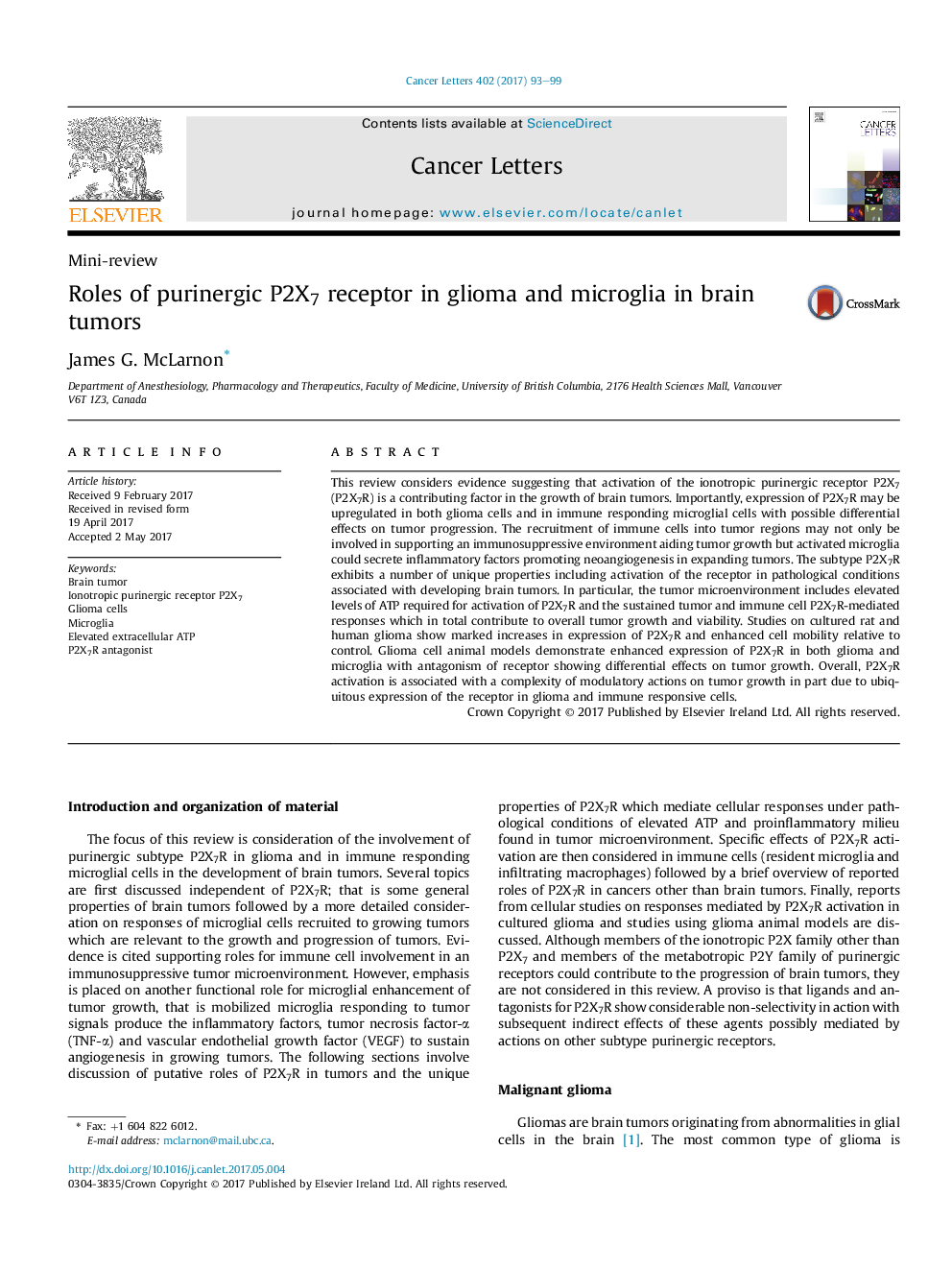| Article ID | Journal | Published Year | Pages | File Type |
|---|---|---|---|---|
| 5525213 | Cancer Letters | 2017 | 7 Pages |
â¢Purinergic receptor P2X7 (P2X7R) is activated in brain tumors and elevated extracellular ATP.â¢P2X7R are highly expressed in glioma cells and resident microglial in tumors.â¢Block of P2X7R inhibits glioma proliferation in human tissue and tumor growth in a glioma animal model.â¢P2X7R antagonism constitutes a rationale strategy to slow tumor progression.
This review considers evidence suggesting that activation of the ionotropic purinergic receptor P2X7 (P2X7R) is a contributing factor in the growth of brain tumors. Importantly, expression of P2X7R may be upregulated in both glioma cells and in immune responding microglial cells with possible differential effects on tumor progression. The recruitment of immune cells into tumor regions may not only be involved in supporting an immunosuppressive environment aiding tumor growth but activated microglia could secrete inflammatory factors promoting neoangiogenesis in expanding tumors. The subtype P2X7R exhibits a number of unique properties including activation of the receptor in pathological conditions associated with developing brain tumors. In particular, the tumor microenvironment includes elevated levels of ATP required for activation of P2X7R and the sustained tumor and immune cell P2X7R-mediated responses which in total contribute to overall tumor growth and viability. Studies on cultured rat and human glioma show marked increases in expression of P2X7R and enhanced cell mobility relative to control. Glioma cell animal models demonstrate enhanced expression of P2X7R in both glioma and microglia with antagonism of receptor showing differential effects on tumor growth. Overall, P2X7R activation is associated with a complexity of modulatory actions on tumor growth in part due to ubiquitous expression of the receptor in glioma and immune responsive cells.
